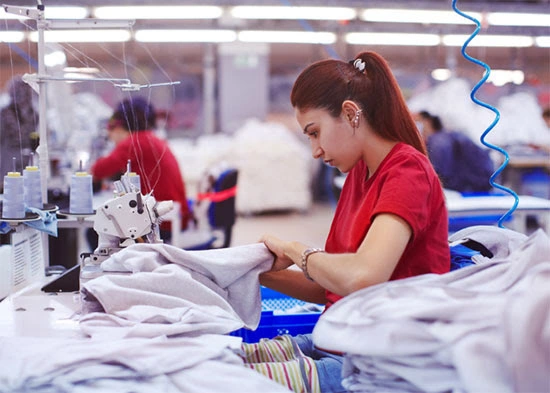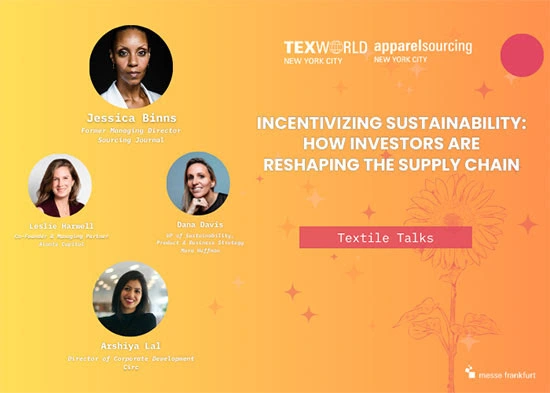Regulations are Coming: Here’s How They’ll Affect Sourcing
Until now, any attempts at cleaning up the apparel supply chain have largely been voluntary—and as a result, the pace of change is falling behind what’s needed to stem the negative impacts of climate change. With a slate of new environmental and social regulations popping up in the U.S. and EU, that’s all about to change.
Through laws like the EU Corporate Sustainability Due Diligence Directive and the New York Fashion Act, fashion firms will soon be held accountable for their resource usage, waste contributions, greenhouse gas emissions, pay practices and more. This shift is likely to cause a seismic change in how the industry has typically operated—and where and with whom brands and retailers choose to work.
Fitch Ratings projects spending to slow in 2024. Mastercard anticipates the tug of war for share of wallet between purchases and experiences will continue. Going forward, apparel sales will hinge on delivering product consumers truly feel is worth their dollars.
Textile Talk On Demand: Incentivizing Sustainability
Increasingly fashion is putting sustainability practices in motion, but to completely transform, the apparel industry needs to invest more time, energy and yes, dollars.
Bringing new innovations to scale is a long-lead, cash-intensive undertaking. In Texworld’s Textile Talk, “Incentivizing Sustainability: How Investors are Reshaping the Supply Chain,” Dana Davis, VP of sustainability, product and business strategy, Mara Hoffman; Leslie Harwell co-founder and managing partner, Alante Capital; and Arshiya Lal, director of corporate development of textile recycling company Circ, discuss how to drive change that’s good for the planet and the bottom line.
For Davis, easing the financial burden comes down to collaboration. “A lot of the challenges that we see to be sustainable… has been more expensive, but when we all join forces and we all actually buy into something, the price comes down. So I think a lot of it is just ensuring that brands are getting on board so that we can actually move the needle,” she said.
A recording of the Textile Talk from January is now available. Tune in to learn:
- How to shift mindsets from competition to collaborations
- What investors get excited about when it comes to new tech
- The ways in which tech and industry can partner for change
- How to balance sustainability against profitability
- How to make a case for change that will resonate at the CFO level
Watch the discussion on demand here.
Mark Your Calendar: Texworld NYC July 16-18
Summer is right around the corner–and so is the next edition of Texworld NYC, Apparel Sourcing NYC, and Home Textiles Sourcing.
Plan to join us July 16-18, 2024 at the Javits Center in New York for the largest sourcing event on the East Coast, featuring materials ranging from sustainable textiles to functional fabrics and sophisticated knits to intricate laces, along with findings, trims and accessories.
Texworld NYC will be co-located with Apparel Sourcing NYC where you can find finished apparel, contract manufacturing, and private-label development across ready-to-wear for men, women, children and accessories. Plus, Home Textile Sourcing will feature fabrics and finished soft goods for all home applications.
Registration for the summer shows starts next week!
Home Textiles Sourcing Returns: Summer 2024 Edition
Home Textile Sourcing, in collaboration with CCPIT-TEX, returns bigger and better this July in New York. The show, which is co-located with Texworld NYC and Apparel Sourcing NYC, is the destination to catch up on the latest trends and innovations in the home soft goods space.
Exhibitors will showcase home textiles, including bedding, bath, table linens, floor textiles, pillows and cushions, and upholstered furniture. The show will provide direction on the colors, patterns, and materials driving consumers in the coming seasons. Don’t miss this one-stop resource for staying ahead of this dynamic home market.
Plan your trip today.
What We’re Reading:
Rise of fast-fashion Shein, Temu roils global air cargo industry
Fast fashion accounts for about one-third of global long-distance cargo aircraft, according to Reuters. That translates into risk when disruptions like the one in the Red Sea occur because there’s little capacity to pivot to. Cross border ecommerce is pushing the freight industry to its limits and is “not sustainable,” according to one insider. Read the article to learn how the industry is attempting to rebalance shipments and accommodate the growing surge.
Material Innovators Must Navigate the ‘Hype Cycle,’ MII Says
The industry is facing the daunting task of pivoting to more responsible materials but there’s good news on that front: investment in material innovation was up in 2023. But, biomimicry is not without its challenges, said the Material Innovation Initiative. While the article points to successes like Tory Burch’s plant-based leather tote and Levi’s plant-based 501 jeans, other innovations struggle to come to market, and still others falter before they can come to scale. Read the article in Sourcing Journal to learn more about the biggest areas of opportunity, how regulation will impact its trajectory and why hype isn’t always a good thing.
Classic Elements Lead Trends to Support Sustainable Manufacturing
Comfort, wellness and sustainability are among the top factors driving consumers today, according to California Apparel News. A variety of production, tech and fiber executives weighed in on what they think consumers are gravitating toward today.
The answers were varied but most agree shoppers want responsibly made product, with some stating consumers will soon expect verified claims as well. Another big focus is on value in the form of performance, durability and reliability as shoppers spend more consciously. Read the article to see how our industry is responding to these demands.
























